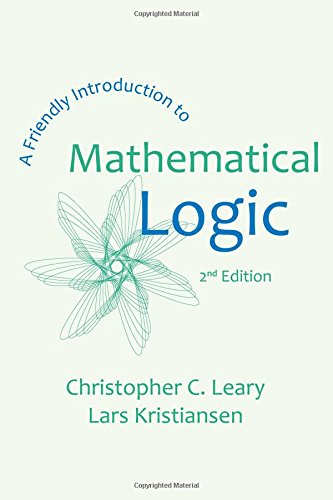
A Friendly Introduction to Mathematical Logic
by Christopher C. Leary, Lars Kristiansen
Publisher: Milne Library Publishing 2015
ISBN-13: 9781942341079
Number of pages: 380
Description:
At the intersection of mathematics, computer science, and philosophy, mathematical logic examines the power and limitations of formal mathematical thinking. In this edition, readers with no previous study in the field are introduced to the basics of model theory, proof theory, and computability theory. The text is designed to be used either in an upper division undergraduate classroom, or for self study.
Download or read it online for free here:
Download link
(1.7MB, PDF)
Similar books
 Logic for Computer Scientists
Logic for Computer Scientistsby Uli Furbach - Wikibooks
This book is intended for computer scientists and it assumes only some basic mathematical notions like relations and orderings. The aim was to create an interactive script where logics can be experienced by interaction and experimentation.
(10329 views)
 Logic For Everyone
Logic For Everyoneby Robert A. Herrmann
This is Robert Herrmann's elementary book in mathematical logic that includes all basic material in the predicate and propositional calculus presented in a unique manner. Neither proof requires specialized mathematical procedures.
(16312 views)
 Introduction to Mathematical Logic: A problem solving course
Introduction to Mathematical Logic: A problem solving courseby Arnold W. Miller - arXiv
This is a set of questions written for a course in Mathematical Logic. Topics covered are: propositional logic; axioms of ZFC; wellorderings and equivalents of AC; ordinal and cardinal arithmetic; first order logic, and the compactness theorem; etc.
(14151 views)
 Logic for Computer Science
Logic for Computer Science- Wikibooks
This book provides a survey of mathematical logic and its various applications. After covering basic material of propositional logic and first-order logic, the course presents the foundations of finite model theory and descriptive complexity.
(10324 views)